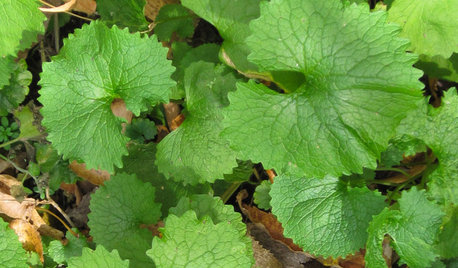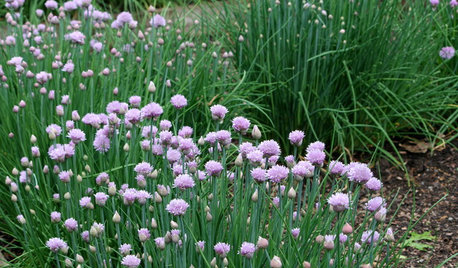Garlic infused oils?
thecurious1
17 years ago
Related Stories

KITCHEN DESIGNExpert Talk: Infuse Your Kitchen With Art
Concoct a showcase for your art on an often overlooked spot: the kitchen wall
Full Story
GARDENING GUIDESDo You Have This Invasive Plant in Your Yard?
Garlic mustard is spreading across the U.S. Here’s how to spot it and what to do
Full Story
HOUZZ TOURSHouzz Tour: Morocco Meets Texas in a Family Townhouse
Souk style infuses this Houston home with energy, texture and enough color to fill a casbah
Full Story
COLORFUL HOMESHouzz Tour: A Home of a Different Color
An interior designer infuses a Colorado home with daring and drama
Full Story
HOUZZ TOURSMy Houzz: A Vancouver Condo Hits a Modern Note
Masculine accents, musical instruments and curated artwork infuse a Canadian bachelor pad with off-the-charts character
Full Story
HERBSHerb Garden Essentials: How to Grow Chives
This decorative and delicately flavored herb from the onion family is easy to grow indoors and out
Full Story
TILEMoroccan Style Stirs Up Exotic Flair
Use patterns, tilework and architecture to bring the enticing feel of Morocco to your home
Full Story
DECORATING GUIDESColor of the Week: Decorating With Warm Gray
Tired of tan? Getting gloomy from cool gray? Make warm gray your new go-to neutral
Full Story
KITCHEN DESIGNKitchen of the Week: An 'Aha' Tile Moment in San Francisco
Design inspiration sometimes strikes in the place you'd least expect
Full Story
LIFECreate a 'Forever House' Connection
Making beautiful memories and embracing your space can help you feel happy in your home — even if you know you'll move one day
Full Story





readinglady
Linda_Lou
Related Professionals
Burlington Landscape Contractors · Cerritos Landscape Contractors · Euclid Landscape Contractors · Golden Landscape Contractors · Holtsville Landscape Contractors · Homewood Landscape Contractors · Midland Landscape Contractors · North Haven Landscape Contractors · Oak Forest Landscape Contractors · Rockland Landscape Contractors · Charleston Roofing & Gutters · Columbus Roofing & Gutters · Cambridge Driveway Installation & Maintenance · Gurnee Driveway Installation & Maintenance · Milpitas Driveway Installation & Maintenancebluejean
thecurious1Original Author
readinglady
Linda_Lou